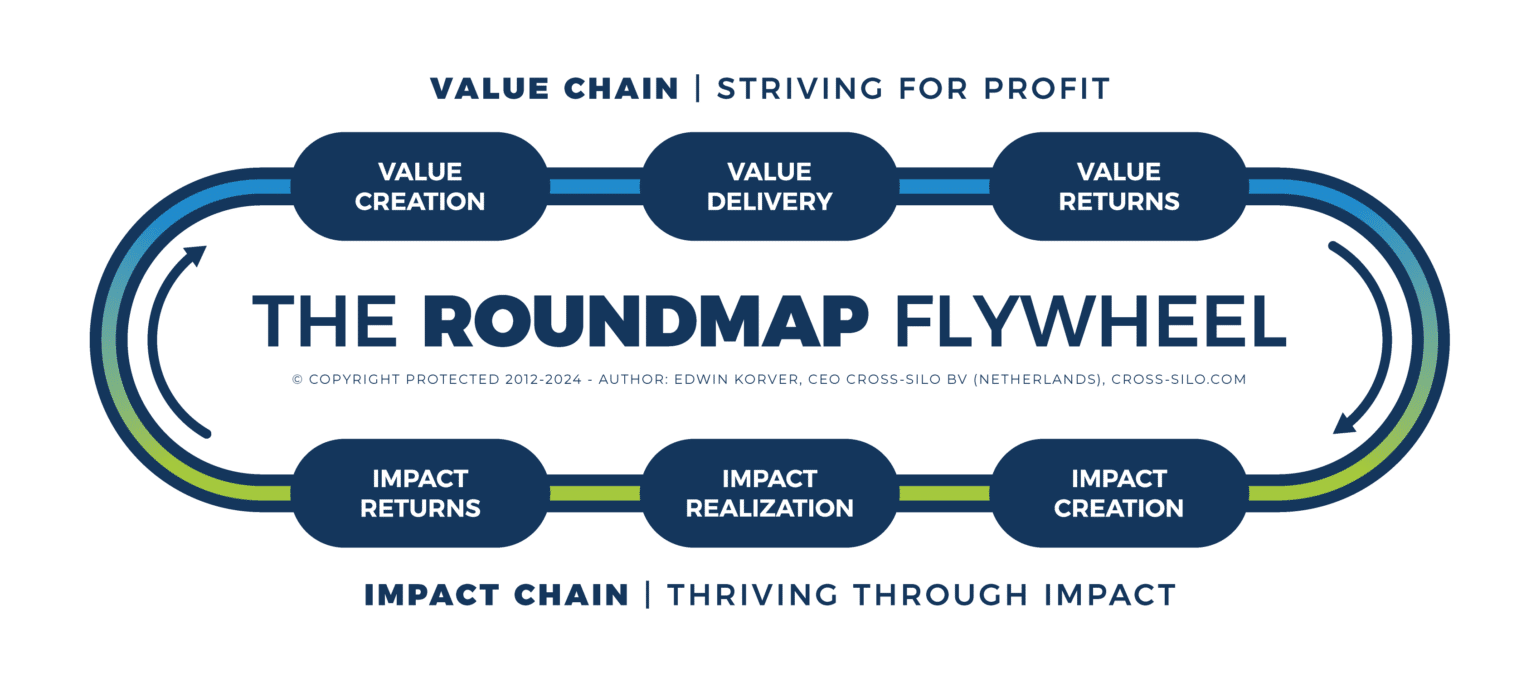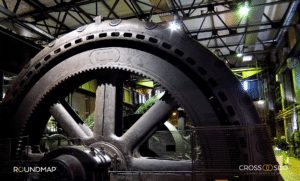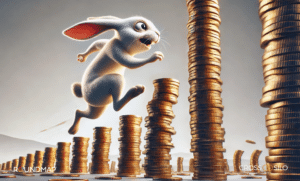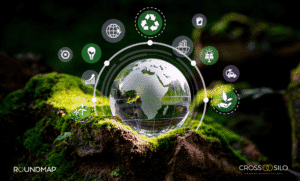The Flywheel of Shared Success is designed to demonstrate that staying within the boundaries of responsible growth doesn’t mean limiting our ambitions—it means channeling them toward something more sustainable and meaningful. By operating within these constraints, we can still pursue growth and success, while ensuring that the value we create is distributed equitably across all stakeholders in our ecosystem.
This equitable deployment of value—how we allocate what we capture after delivering products and services—strengthens the very ecosystem that supports us. It builds loyalty among customers, fosters more capable and motivated employees, garners greater community and governmental support, and, in turn, creates a more resilient and sustainable society and environment.
The shift from extraction to contribution is at the heart of this model. Instead of viewing businesses as separate entities, competing for their survival in isolation, we must embrace our interdependence with the broader ecosystem. The failure to recognize this interconnectedness, and the relentless pursuit of short-term profit at the expense of long-term health, has led many organizations to their own undoing. Extraction without reinvestment is ultimately unsustainable.
This is why we’ve complemented Michael Porter’s value chain with the impact chain. Instead of focusing on capturing value, we emphasize redeploying it—investing the value we create to nurture the ecosystem that sustains us. This concept aligns with Porter’s vision of shared value: moving beyond short-termism to strategies that create lasting benefits for businesses and society alike.
The evidence supports this approach. The Just 100 companies, which prioritize equitable and responsible practices, are outperforming the Russell 1000 by 13.7%. This is a clear indicator that long-termism isn’t just good for stakeholders—it’s good for shareholders too.
This is the lesson we must learn: to grow responsibly, to invest equitably, and to recognize that our own prosperity is inseparable from the health of the ecosystems we inhabit. By doing so, we can build not only more resilient businesses but also a more sustainable and thriving future for society and nature.

Continue Reading on Striving & Thriving:

More Than Crumbs: The Case for True Value Creation
For decades, shareholder primacy has dictated corporate decision-making, driving businesses to prioritize short-term profits and disproportionate returns to shareholders over long-term sustainability and stakeholder value.

Beyond Extraction: Why Regenerative Business is the Only Way Forward
The RoundMap’s Regenerative Business Framework proposes a dual-cycle approach to business: one focused on value creation and another on impact. However, reality presents us with

RoundMap Regenerative Business Framework: Empowering the Present while Building the Future
Executive Summary The Regenerative Business Framework addresses the critical need for businesses to move beyond mere profitability toward regenerative practices that drive long-term growth and

Rethinking the Flywheel: Why Amazon’s Misinterpretation Misses the Mark
The concept of a flywheel, as originally designed, was never about spinning faster to achieve exponential growth. It was about stabilizing energy output—ensuring a steady,

From Striving to Thriving: How Amazon is a Strive-Driven Giant Failing to Thrive
Amazon has become synonymous with business success, often hailed as a master of efficiency, customer obsession, and innovation. At the heart of its growth strategy

The Flywheel of Shared Success: How Impact Drives Sustainable Growth
In the fast-paced world of business, the focus often rests on immediate value creation—developing products, closing deals, and driving revenue. While these activities generate vital

The Reciprocity Effect: How Giving Back Completes the Cycle
Ten years ago, I began developing the Customer Lifecycle—a map of frontline activities—because I saw how social media was reshaping the marketplace. It wasn’t just

Impact Strategies to Amplify Value and Mitigate Harm Across Stakeholders
What if doing the right thing wasn’t just a moral choice but a strategic one? What if amplifying your organization’s positive impact while mitigating harm

The Twin Engines of Progress: Returns on Value and Impact
At the heart of the Flywheel of Shared Success lies the powerful interplay between Value Returns and Impact Returns, both of which operate on the

From Hopping for Cash to Building Bridges: Why Self-Interest Alone Can’t Sustain Shared Prosperity
What we’re proposing with the Flywheel of Shared Success is nothing short of a call to confront and correct our deeply flawed execution of Adam

If Adam Smith would still be alive, how would he perceive our modern economic systems?
If Adam Smith were to assess the state of our modern economic systems, his critique would likely be sharp yet eloquent, reflecting the moral gravitas

The Impact Chain Framework: Transforming Values into Shared Success
The Impact Chain operates alongside the Value Chain, complementing its focus on value creation and economic profit. While the Value Chain transforms activities into financial
Author
-
Edwin Korver is a polymath celebrated for his mastery of systems thinking and integral philosophy, particularly in intricate business transformations. His company, CROSS/SILO, embodies his unwavering belief in the interdependence of stakeholders and the pivotal role of value creation in fostering growth, complemented by the power of storytelling to convey that value. Edwin pioneered the RoundMap®, an all-encompassing business framework. He envisions a future where business harmonizes profit with compassion, common sense, and EQuitability, a vision he explores further in his forthcoming book, "Leading from the Whole."
View all posts Creator of RoundMap® | CEO, CROSS-SILO.COM




